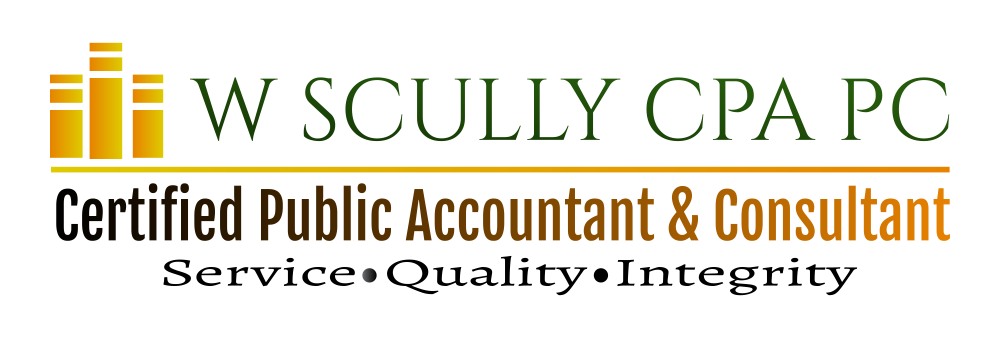If you are a real estate agent or investor, and wish to run your business properly, it’s important to know how to navigate the complexities of tax season. After all, tax season can be scary for real estate professionals anywhere. And, Jamaica Queens is no different. However, by understanding common pitfalls and taking proactive steps, you can ensure a smooth filing process. Let’s tackle a few things you must know going into every tax season.
Record keeping and Book-keeping
First and foremost, maintaining accurate and detailed records is essential. This includes tracking expenses related to your real estate business, such as office supplies, travel expenses, and equipment purchases. Organizing your records throughout the year will save you time and headaches when tax season arrives.
Speaking of being organized, my former client Thafarie T. did not know if she made money or not, because her “books” were a mess. She had to search her Amazon account and comb through her bank statements to piece together an income statement to help prep the tax returns. It was a tedious task for us and an expensive lesson for her. So, take my advice, try to avoid that happening to you.
One of the best ways to track expenses and income in real-time is using book-keeping software. As a result, I personally use Quickbooks to record my financial transactions monthly. It makes the process easy and stress-free. Simply, it allows businesses to use rules and automation to effectively and efficiently maintain their books and records. In fact, the IRS record keeping guide, found here: https://www.irs.gov/businesses/small-businesses-self-employed/recordkeeping, requires you to prove every item on your tax return with proper record-keeping. Besides that, knowing your “numbers” can be instrumental in making important and timely business decisions.
Employee vs. Independent Contractor
Clients often get this confused, but it is critical to know the distinction between employees and independent contractors. Misclassifying workers can lead to severe penalties and fines. Take the time to comprehend the guidelines and regulations surrounding worker classification to avoid costly mistakes. Or, hire someone who can do that for your business. The IRS, the US Department of Labor, and various states have rules about who is an employee vs. an independent contractor, but they all seem to point to one common denominator, CONTROL.
Consequently, if you exercise control over that person’s comings and goings, especially regarding deliverables, then they are likely your employee. Interestingly enough, in recent court cases involving ride-share drivers in New York, the state’s Supreme Court ruled Uber “holds adequate control over their drivers to be considered their employees” and companies, like it, are now forced to pay certain employee benefits, like workman’s compensation, to drivers that use their platform. Read more about this here: https://www.reuters.com/legal/uber-settles-new-york-state-claims-related-unemployment-benefits-drivers-2023-11-02/. While this is a ride-share case, the wider implications are obvious. It’s now so much more important to understand the difference between an employee and a third-party contractor.
Deductions and Penalties
In addition, claiming all eligible deductions can significantly reduce your tax liability. From mortgage interest to advertising costs, take advantage of every deduction available to you. Research and understand which expenses qualify for deductions to maximize your savings. Absolutely never inflate your expenses, because if you are audited, you will pay dearly for that error in judgment. The IRS and states add penalties and interest. Furthermore, depending on the specifics of your case, they can assess accuracy related penalties of 20%, and if they can prove fraud, it gets really bad – I am talking jail. But, if you do the right thing and find your tax bill is still high, maybe it is time to hire a tax pro that offers tax planning to find you more tax savings.
Depreciation & Rental Income
Reporting rental income is vital if you own rental properties. Accurately document rental income and expenses, including depreciation, maintenance costs and property management fees. The depreciation deduction is part of the reason rental real estate is attractive from a tax standpoint. I have prepared several tax returns with a Schedule E, and the depreciation deduction can be significant, resulting in a lowered tax bill. Watch this video to learn more about depreciation: https://youtu.be/84xtHaRVGOQ. But yeah, make sure you also report all your rental income. Remember, lost rent is not an expense, nor does it reduce your rental income.
Capital Gains
Moreover, tracking capital gains is essential when selling properties. Understand the tax implications of capital gains and how they impact your tax bill. Consult with a tax professional to optimize your tax strategy. This capital gains is a doozer. The good news is that if you are a residential homeowner here in Jamaica Queens and sell property you used as your principal residence, you may qualify for the primary residence exclusion and save taxes on up to $500,000 in capital gains. Beware though: these rules don’t work for investment property. Yet, with careful planning (a tax planner is highly recommended), you can defer or eliminate capital gains tax. Two noteworthy options, though outside the scope of this post, are utilizing 1031 exchanges and Qualified Opportunity Zones. I’ll definitely cover these in future blog posts.
Final Thoughts
In conclusion, filing taxes as a real estate professional in Jamaica Queens requires attention to detail, understanding common mistakes, and proactive planning. By maintaining accurate records, classifying workers correctly, claiming all eligible deductions, reporting rental income, and tracking capital gains, you can ensure a smooth and stress-free filing process. Remember, taking the time to understand the complexities of tax season can save you money and headaches in the long run. If your situation is complex or nuanced, consult with a tax professional (https://wscullycpa.com/about/), and stay ahead of the game when it comes to your taxes.
Are you a real estate professional and need help with your tax and accounting? I am here for you! Please contact Wayne Scully by e-mail at [email protected] or by phone at 718.938.4601.
Learn about Qualified Opportunity Zones here: https://wscullycpa.com/maximizing-returns-unraveling-tax-benefits-of-opportunity-zones/
Get a FREE! FREE! copy of Wayne’s book here: www.getmytaxbook.com.

